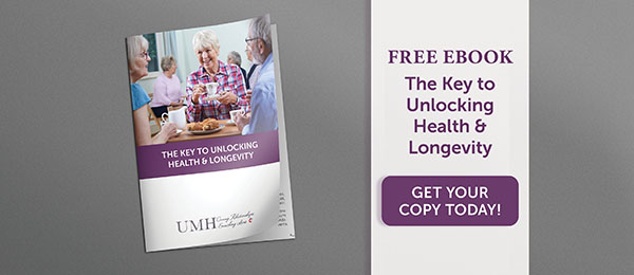Alzheimer’s disease and other forms of dementia can have one of the most tragic effects on a senior’s life: stealing their precious memories. There is, however, one key brain area that goes relatively undamaged in the process, and that is musical memory. A senior’s memories linked to music may be largely preserved, even for those in highly progressed stages of Alzheimer’s and dementia.
Research suggests that listening to or singing songs can provide both emotional and behavioral benefits for this population. In light of this knowledge, memory care programs highly committed to the overall well-being of the seniors in their care often leverage music as a valuable means of support. To understand the link between music and memory more clearly, we’re providing helpful information that highlights this important connection.
Behind the Brain Science of Memory
Comprehending the brain’s ability to preserve musical memories requires an understanding of two types of long-term memory: explicit and implicit.
- Explicit memory is a deliberate, conscious remembering of the past. It is associated with a conscious awareness and incorporates aspects such as textbook learning and experiential memories. This type of memory fades when a person’s recall abilities are impacted, like in the case of Alzheimer’s or dementia.
- Implicit memory is of an unconscious or automatic nature. A large part of one’s memory takes place in the unconscious mind and is a form of classical conditioning. It’s illustrated in the way someone learns and remembers to play an instrument. Implicit memory can last a lifetime and is much more enduring in the face of neurodegenerative conditions like Alzheimer’s or dementia.
Implicit memory has the unique ability to link a song to a person’s emotion and the correlating moment in time. And since implicit memory remains well preserved even when confronted by Alzheimer’s or dementia, a certain song or piece of music can effectively help seniors battling these conditions bring forth emotions and stimulate memories.
What the Studies Say about Music, Memory & Mood
The relaxing and restorative power of music is amazingly illustrated in the lives of seniors suffering from Alzheimer’s disease and dementia. Even as these conditions progress and cognitive function declines, the human brain still naturally responds to music. And the benefits continue long after the music stops playing. Following are some eye-opening examples of research that helps to explain this phenomenon.
- By mapping the brain activity of students while they listened to music, UC Davis researcher Petr Janata found that the region of the brain where memories are supported and retrieved (the medial prefrontal cortex region, which is right behind the forehead) also serves as a hub that links familiar music, memories, and emotion. The discovery helps to explain why music can elicit strong responses from people with Alzheimer’s, given that the medial prefrontal cortex region is one of the last areas of the brain to atrophy over the course of the disease.
- A study conducted by researchers at the University of Miami School of Medicine revealed that music therapy leads to increased secretion levels of "feel-good" brain chemicals, including melatonin, serotonin, norepinephrine, epinephrine, and prolactin in Alzheimer’s patients. The results are manifold: Music can boost mood, reduce stress and agitation, foster positive social interactions, coordinate motor function, and even facilitate cognition.
- The results of a Boston University study suggest that music may help people with dementia retain new information. Researcher Brandon Ally found that Alzheimer’s patients who were put through a series of memory tests learned more lyrics when they were set to music rather than just spoken, while healthy elderly people remembered just as much and just as well with or without music.
- Researchers led by Dr. Teppo Särkämö at the University of Helsinki, Finland revealed that caregiver-implemented musical leisure activities, particularly singing, are cognitively and emotionally beneficial, especially in the early stages of dementia. Singing was found to be beneficial for working memory, executive function, and orientation, and both singing and music listening were more effective in alleviating depression, especially in persons with mild, Alzheimer’s-type dementia.

Spotlight on Music Therapy in Memory Care
Quality memory care programs understand and value the positive impact music can have on seniors battling Alzheimer’s disease and dementia. That is why United Methodist Homes’ memory care program at Wesley Village integrates music into the lives of residents. It is one of only a few certified MUSIC & MEMORY® care communities in the State of Connecticut, bringing this personalized digital music program to seniors who can benefit from such a compassionate, human-centered approach to memory care.
Music & Memory is a non-profit organization that helps individuals with a wide range of cognitive and physical conditions to engage with the world, ease pain, and reclaim their humanity through the use of personalized music. By providing access and education, and by creating a network of Music & Memory certified organizations, its goal is to make the therapeutic use of personalized music a standard of care throughout the healthcare industry.
The effective intervention of favorite music, used according to evidence-based best practices, is proving how personalized playlists offer an effective, side-effect-free, non-pharmacological approach to improving quality of life and care. The Music & Memory organization trains care professionals on how to set up personalized music playlists for those in their care using inexpensive mp3 players. These music favorites—specifically the beloved songs from a person’s formative years—tap deep memories not lost to dementia and can bring listeners back to life, enabling them to feel like themselves again, converse, socialize and stay present.
Music therapy has been used for centuries to relieve stress and promote a sense of well-being. By incorporating music into the life of a senior with Alzheimer’s or dementia, memory care programs like the one at United Methodist Homes, are helping residents experience its many profound benefits.
For additional tips on senior health and lifestyle issues, check out our blog. To find out how United Methodist Homes provides a wealth of offerings and opportunities to support the health and wellbeing of our residents, contact us today or schedule a complimentary visit now.







